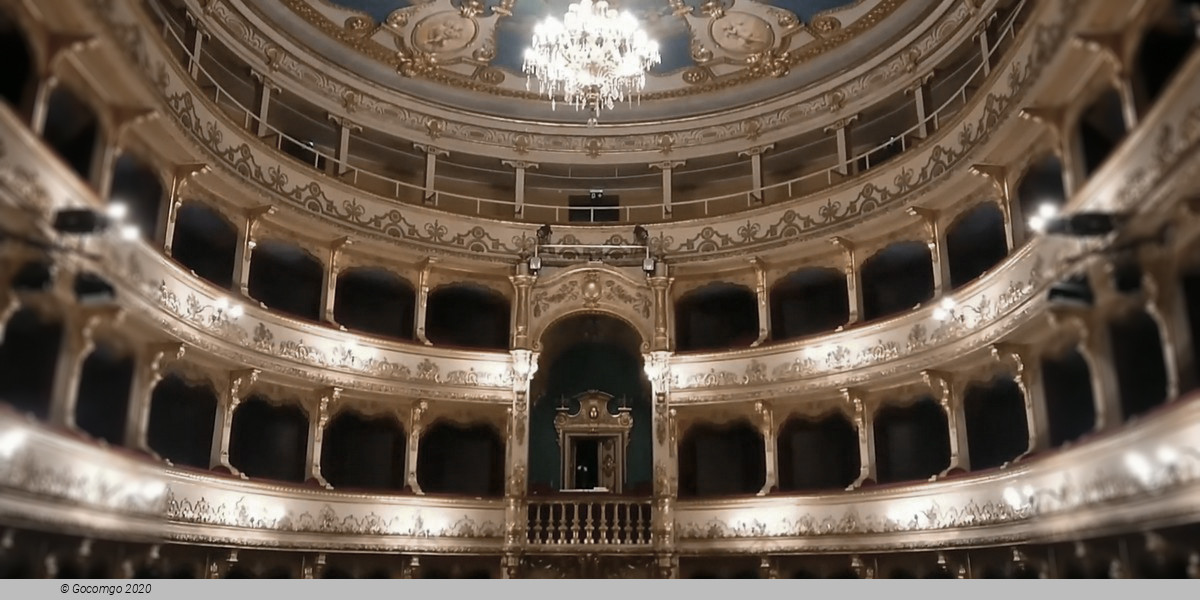Teatro Girolamo Magnani (Parma, Italy)
Teatro Girolamo Magnani

The Girolamo Magnani theater is the opera house of Fidenza, in the province of Parma; in neoclassical style, it stands in Piazza Giuseppe Verdi 1.
The theater was built on the site of an ancient church dedicated to St. Francis, annexed to the Franciscan convent closed in compliance with the Napoleonic decrees of the early 19th century and demolished around 1860. The company that promoted the construction, made up of 39 people commissioned the architect Nicolò Bettoli with the project, who started the construction site in 1813, following the demolition of the place of worship; however, the works were suspended a few years later due to lack of funds.
In 1831 the promoting company proposed the purchase of the theater to the Municipality of Fidenza, but found the opposition of the Duchess Maria Luigia, who considered the work too burdensome for the public coffers; in 1835 a violent storm destroyed the roof under construction, deeply damaging the stage and the unfinished load-bearing structures.
In 1848 the Municipality bought the area, now occupied by the ruins of the theater under construction, and in 1854 entrusted the engineer Antonio Armarotti with the direction of the works, who restarted the building site by making various modifications to Bettoli's original project, judged too onerous; the unexpected collapse of the nearby church of San Giovanni made it possible to save on construction materials, speeding up the work considerably.
The fidentino Girolamo Magnani, assisted by Giuseppe Giacopelli and Francesco Spada, intervened for the interior decorations and the theater was completed in 1861; the solemn inauguration was held on October 26 of that year, with the representation of the opera Il Trovatore, by Giuseppe Verdi, with sets by Magnani himself.
In 1889 the Municipality decided to name the theater after the set designer Girolamo Magnani, who died in September of that year.
In 1910 the electric lighting system was built, while between 1932 and 1933 the interiors were restored, paying particular attention to the decorations of the hall. In 1953 the stage, which showed signs of sagging, was rebuilt in reinforced concrete, while in 1964 the heating system was built.
Between 1985 and 1988 the theater was closed for the indispensable work of adaptation to the safety regulations. In 2004 the frescoes that cover the dome of the hall were restored and in 2008 those of the foyer, while in 2009 the restoration of the facade and the roof was completed.

